Sheela Bhatt
The Pillais are a well-respected power couple in New Delhi. Sudha and Gopal Krishna met and fell in love when they were at the Indian Administrative Service training academy in Mussourie. Sudha, a Punjabi, who is a post-graduate in psychology and public administration, is also a painter. Gopal Krishna is a postgraduate in science. Both of them joined the Kerala cadre on July 15, 1972. As home secretary, Pillai will have a fixed two-year term till June 2011.
To serve under a demanding minister like Palaniappan Chidambaram is a challenge for Pillai. His previous stint as commerce secretary gave him the cachet to be considered for his current job. It is said that India's government officials are the steel frame on which rests the entire structure of governance. Pillai, one of India's important secretaries who is in charge of the police and public order, has a difficult and challenging job ahead of him.
The ministry of home affairs is the most important ministry because it is responsible for India's internal security.
Pillai has a reputation as a man who believes in taking decisions. He hates delays in moving files and it is the only thing that makes him angry. The home secretary works in his North Block office from 9 am to 9 pm.
After taking charge, he spoke to rediff.com's Sheela Bhatt in a free-wheeling interview about himself, his new job and the need for a huge dose of pragmatism when one is home secretary of India.
After 37 years in government service, do you still feel like a babu?
I don't feel like a babu. I feel I still have the same amount of energy as I had when I had joined the service 37 years ago. When you join the service, I think, you see things more in terms of black and white. You are idealistic and very energetic.
After 30 years in service you realise that there are so many more aspects to governance which come into play. There are often contradictory aspects to governance like contradictory political forces, contradictory administrative pressures that come into play.
In one sense after 30 years you have a matured outlook but when you are young you see the job as one where something has to be done, then, that's it! It should be done. One is not bothered about anything else. Our job as a sub-divisional magistrate was more straightforward. You just follow the rules, nothing else really mattered to us, then.
In those days were the rules of governance better?
Governance in the states and the Centre is an altogether different story. Then I saw a narrow view. In the Centre you see a larger national picture and its international ramifications. Here you realise that while taking some decisions you have to take in many more views then simply applying the law. In New Delhi, you realise that there are five to six different angles to the same story.
'In government, we always face wicked problems'
Image: Gay rights activists dance at the Queer Pride March in New DelhiPhotographs: Adnan Abidi/Reuters
Just look at the Section 377 issue. There are some people who believe homosexuality is bad. It's their strong conviction. There are others who are equally strong in their conviction that it is my private affair and it is my reality.
There are other shades of opinion on it. There are some who say that they don't mind homosexuality, but why should they call it a marriage? In their opinion marriage can only be between a man and woman. It cannot be between two men. Let them find some other term for homosexual relations.
So each person has his own view and when you look at it you try to balance.
I think the Delhi high court judgment is a very balanced judgment. It brought out different issues and said here is the section that is violative of the Constitution. But they said that you can't have such kind of relations between a minor and a major. That is still illegal.
Now, as per the directions of the high court we have to amend Section 377. I don't think the government is likely to go in appeal. But if you are going to amend it, you have to take different nuances into account and sensitivities of different views.
In government it is called wicked problems. All the time we face wicked problems. There are no straight answers to a solution. Any solution that I find is going to affect somebody else.
In the process X will benefit and Y will lose out. Someone else will be affected partly so it is always a compromise between the three.
While sitting in one of the highest ranking positions in the bureaucracy why do you say you don't feel like a babu?
In all my 37 years I have always taken decisions. Whether in commerce or when I was joint secretary in the home ministry, I took decisions. My basic principle is to take the decision quickly.
If you take a decision either you will be proved right or wrong. If I am right it pleases everyone and if I take a wrong decision the issue will go to the home minister or Cabinet secretary. Surely, there will be scope to correct it.
You did a lot at the commerce ministry. You put in place the controversial Special Economic Zone policy as well. What is a good management mantra for you?
Clarity.
What I am doing, I should be clear about it. I am clear about my objective.
'The Maoists are taking advantage of the tribals'
Image: Women Naxalite cadre with bows and arrows during a rally in KolkataPhotographs: Jayanta Shaw/Reuters
I don't think that the Maoists are the real issue. It's about the country's tribal population. The Maoists are taking advantage of the tribals and using them. The tribals have issues about their land rights, their forests rights. On a number of other issues they have problems.
I will ensure law and order but along with that we should see the land issue and forest issue, development issue, education and health issues. These issues will have to be tackled as well.
In good management policy, once you have clarity and focus then you must take the decision. I am lucky I have taken lots of decisions. You may say some of them may be out of the rulebook. But people have trusted me.
I have no angle to play. I am not biased, so I got away with it.
I know in some cases people have taken good decisions. For some reason they get caught and then an inquiry starts and vigilance reports come. After that the bureaucrat thinks why take a decision? If I don't take a decision, I am safe.
The government system gives no incentive for taking decisions. If you don't take decisions, you are never held accountable.
I have never been in trouble for taking decisions. I have been very lucky. I know many efficient and absolutely honest officers who have been in the wrong place at the wrong time.
Why do Indian babus, even those who are honest and smart, delay the system?
I agree delays are there. In government, part of the reason for delays is that over the years we have made lots of rules and regulations which have caused some delays.
See, I make a rule. Then I see that X has found a loophole. He is the crook. So, what do I do? I plug the loophole. Then, if somebody else has done something wrong with the help of the rules, I plug it again.
While plugging various loopholes I make sure that nothing goes wrong in the eye of the law. In the process 95 percent of honest people get rapped. Because I have made the rules so tight, assuming that everybody is a crook.
This causes delays in government. That's why the system runs slow. I planned the SEZ policy. I introduced self-certification. I said if I catch you doing something wrong then I will really hang you.
How do you see corruption within the bureaucracy?
I think there is substantial increase in the corruption in the bureaucracy. It's a part of the... what do I say... 30 years of licence raj and all that has resulted in corruption. And we could not get rid of all those systems.
I think very strict action is required. I believe if the top is corruption free it is much easier to put it down. It makes no sense to catch a peon who takes ten rupees and convict him. At the top people get away.
'Civil society has to be less tolerant of corruption'
Image: A convoy of cars enters Parliament during the Budget sessionPhotographs: B Mathur/Reuters
I think lots of people in society have started accepting this. They think if you want something to be done you have to pay. In the commerce ministry, I said it is important to be transparent. I put the agenda of SEZs on the Internet.
I think civil society has to be less tolerant of corruption. I think people say 'yeh chalta hai'. People should come down very hard on corruption. I am hoping that the Right to Information Act will change things and help in some way.
How do you see the broader picture of your duty?
The primary objective of the home ministry is to provide security to citizens of this country. Everybody wants security. I want go out and return safely. I don't want my house to be burgled. That is one aspect. Then we have the Kashmir issue, the northeast issue, and the Naxal/Maoist violence.
Also, we have to provide good governance to the department. This is not rocket science; everybody knows what the home ministry should do.
We need good governance and it should be corruption free. When someone applied for an arms license in the districts, I used to give a slip of paper saying the application is received and I used to give a fixed date. When the person knows he is going to get an arms license on a fixed date he will not indulge in corruption.
In the US, the difference is that whatever the common man needs is done very fast and without corruption. We have heard that in big deals they have corruption, but at the lower level things move fast.
But in India, the common man doesn't find things moving at a lower level. The police must be friends of the citizen. The police should not be somebody who is 'avoided' by the people.
You are the home secretary. You move around in an Ambassador car; your wife is also a powerful officer. Do you know what the common man's problems are?
Of course, as commerce secretary, I used to have an open house. I traveled to Ludhiana, Kanpur and all such towns to know the problems of common people. Businessmen are not crooks. They have people working with them. I went to see the carpet industry, I went to Moradabad to meet the brass makers. I meet weavers in Varanasi. We do keep our eyes and ears open.
We believe top government officers with lots of power have no idea how insecure the average citizen is.
I know it because even my house got burgled! (laughs heartily.) It was burgled last December. I know quite well how the police functions in such cases. I also know how the police reacted when my servant's son ran away with another servant's daughter.
We have no option but to keep in touch with real life. Even today as home secretary I buy my provisions and vegetables. I go in my car and not in the official car. I have my favourite subziwallahs. One is in Khan Market and another is in Sarojini Market. I know the price of aloo and other vegetables. I know prices are going up.
'You violate curfew, then you can't say you should not be punished'
Image: A policeman faces protesters in SrinagarPhotographs: Fayaz Kabli/Reuters
If you ally too close to the minister then you have problems. I do things professionally. I have no vested interest on any proposal that comes in. If I have, then I keep out of the decision-making process.
I don't have a single share in any single company. That is the cautious decision I have taken. If I would have bought shares then as commerce secretary some decision could have influenced the share price of that company.
People do come and give you shares from the director's quota. I have stayed out of it. There is a lot of socialising possible that I don't do. I can be entertained by businessmen, but I can never reciprocate within my salary, so I don't go.
If you have lakhs of shares of the company and if files belonging to that company come to you then you won't like to take a decision due to which the price of the shares of that company would fall. This is essential for the bureaucracy.
When the Mumbai terror attacks happened last year the home ministry cut a sorry figure. That night we felt the home ministry's different organs failed the people. How will you react now?
We will make sure that such a thing doesn't happen gain. God forbid, if, it happens again, then our response and reaction should be far more professional. Hypothetically, I am saying that if the Taj kind of incident happens then within three or four hours the entire operation will be over.
How do you see the recent disturbances in Kashmir? Are things changing fundamentally?
There are changes. One has to look closer. Take the incident in Baramulla. A Muslim boy and a Muslim girl eloped. The parents of the girl filed a complaint against the boy, saying he has run away with my minor daughter. Nobody is talking about it. The police then went to the boy's house. He wasn't there, obviously he had run away.
As normally all police do, they picked up a brother-in-law of the boy. They wanted to question him because they thought he knew where the couple is hiding. He knew that in this case and the boy and girl were found. Nobody is writing about that couple.
When the brother-in-law of that eloped boy was taken back his wife with one more lady relative came to the police station. She alleged that the police had taken money. Later, she changed her statement and said the Station House Officer asked her to spend the night etc overnight.
The entire story was blown up. This happened between the local people and the J&K police.
The incident had nothing to with the paramilitary forces or the army. Then the people turned against the Central Reserve Police Force who had not been involved in the incident. Nobody writes that in the last one year, 1,200 CRPF jawans have been stoned and suffered injuries. 200 CRPF vehicles have been burnt in J&K.
At the request of the state government, the CRPF is there to protect public property. Now when they attack inside government property, they would open fire. If you violate curfew, then you can't say you should not be punished.
The people are criticising the CRPF in Baramulla, but everybody has forgotten the original incident. If the girl would not have run away nothing would have provoked the people.
Are the National Security Guard hubs battle-ready?
Yes, they are ready for operation. They have 241 people, weapons and vehicles. If tomorrow something happens like Mumbai they will be ready to fight back.

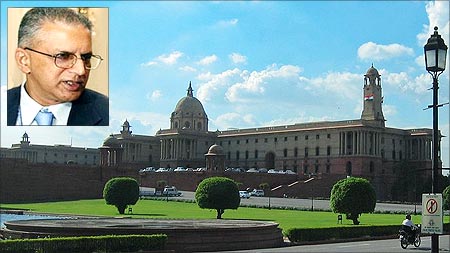
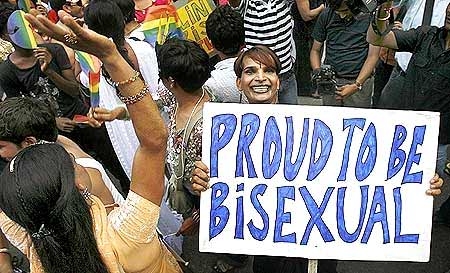
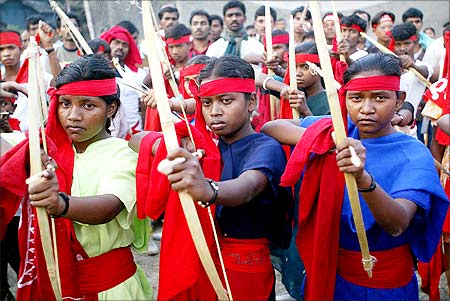
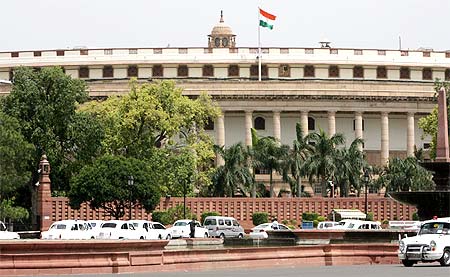
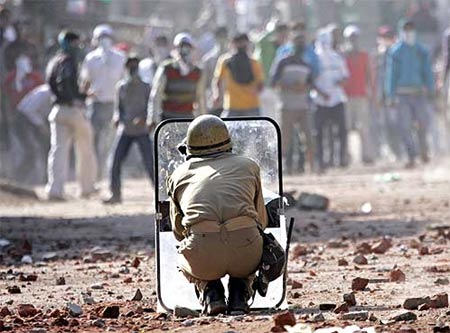
article